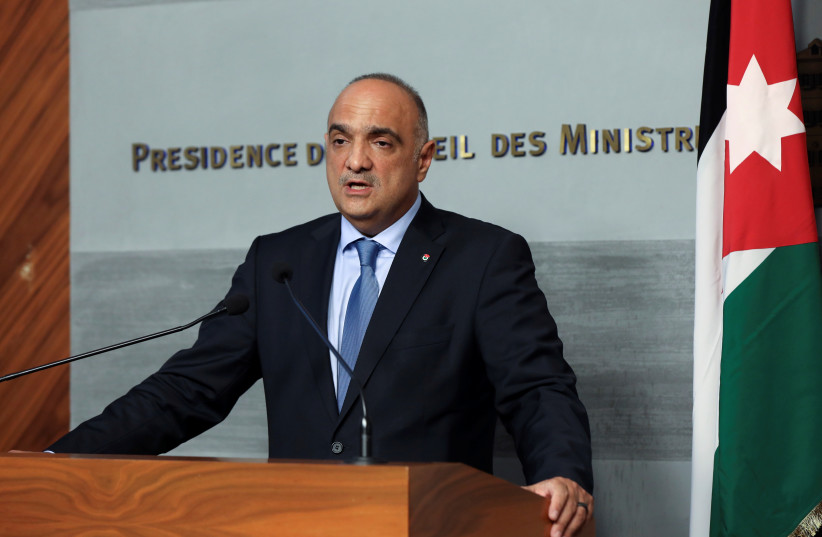Jordan's Prime Minister Bisher al Khasawaneh said on Tuesday that peace with Israel remained a strategic choice but any push to drive Palestinians to the kingdom would pose an "existentialist" threat.
Jordan, which shares a border with the West Bank, fears that the Gaza conflict could spread with wider violence by armed settlers encouraged by the army triggering a large scale Palestinian exodus to the other side of the Jordan River.
"In the event that there are actions and conditions that generate and create mass displacement of populations, that is a clear violation of the peace treaty," Khasawneh said, referring to the country's 1994 deal with Israel during a session in Davos.
"It poses an existentialist threat... that we will have to react to, and we hope we will never arrive at that point or juncture because we are firmly committed to a comprehensive peace."
Regional projects between Jordan and Israel suspended
Khasawneh said regional projects with Israel that involved multi-million dollars where both countries would trade energy and water that were in the pipeline before Oct. 7 were for now effectively suspended.

"Today under the existing conditions it's quite inconceivable for any Jordanian minister to just sit on a podium and have that type of interaction and transaction with an Israel counterpart as regrettable as it is, it's a fact of life," he added.
"The horrific scenes that are on the screens day in day out and hour in hour out of the carnage wreaked on Gaza by the indiscriminate targeting of civilians, a majority children and women is something that renders that unimplementable under the existing circumstances," Khasawneh said.
Israel launched the war to eradicate Hamas after terrorists stormed across the border fence on Oct. 7, killing 1,200 people and capturing 240 hostages. The war has driven nearly all Gazans from their homes, some several times, and caused a humanitarian crisis, with food, fuel and medical supplies running low.
The only solution to avoid deeper conflict and regional instability was to put in place a political process with a time frame that leads to a two-state solution where a Palestinian state would emerge alongside Israel, Khasawneh said.
